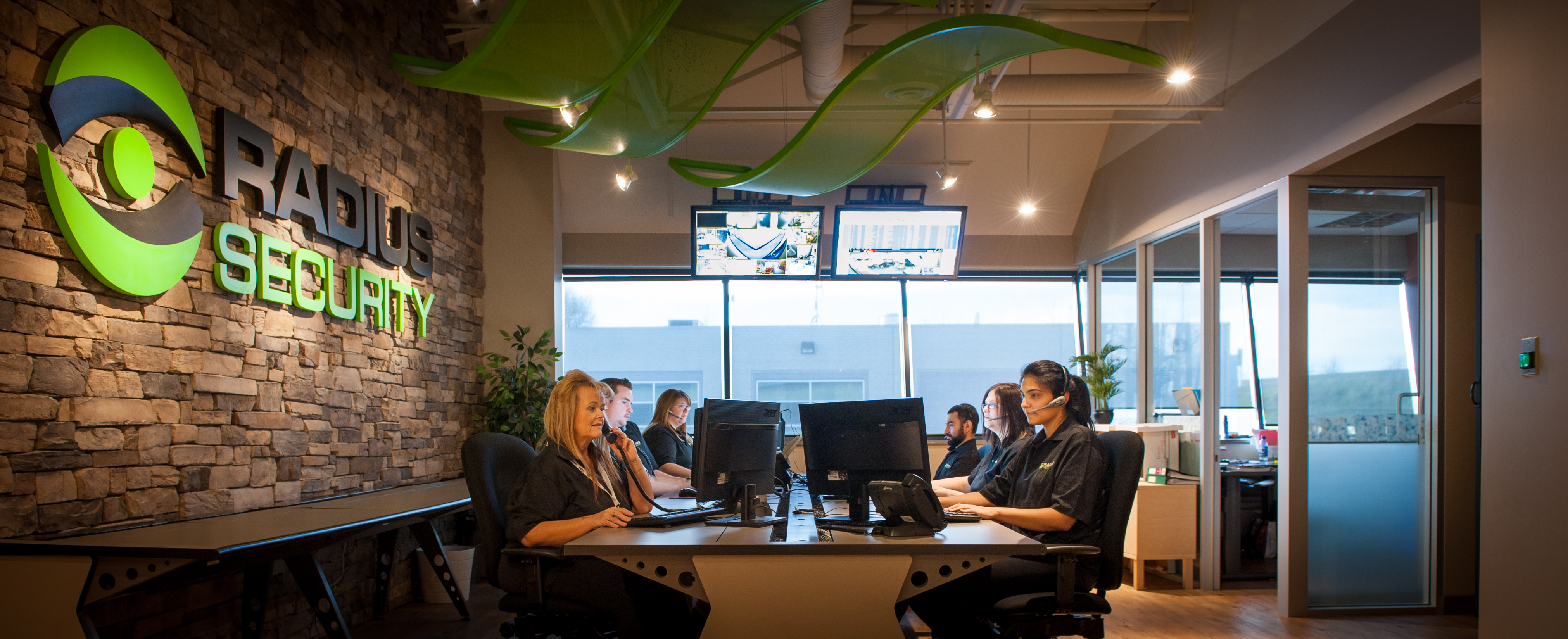While most of North America braved snowstorms and freezing temperatures, security industry leaders gathered for the 2019 Barnes Buchanan Conference in balmy Palm Beach, Florida from February 7 to 9. Radius Security CEO Rob Baxter joined a panel of experts to discuss the state of the video monitoring industry. Here are some highlights from this event, and a complete list of video monitoring trends to watch in 2019.
The Market
The market for video monitoring, currently in the early adoption phase, is large and growing. It is increasingly focused on services for high-crime clients that were previously using guards. Based on the Vancouver market, which is roughly 1% of the North American market and has $1 million recurring monthly revenue (RMR), Baxter estimates the North American market to be about $100 million in RMR.
Definitions
There remains some confusion over terms:
Video Monitoring means cameras are actively monitored to prevent crime. They do not merely passively record events for investigation or forensic purposes after a crime has occurred.
Live-View Video Surveillance is not event-triggered. It is people watching cameras.
Video Verification refers to verifying alarm events using video.
Motion Detection Monitoring uses sensors to detect movement. These sensors may trigger cameras to record the event.
Video Analytics refers to software that analyzes video footage to detect specific patterns of movement and to filter out irrelevant details. Installed in security cameras, the software analyzes video as it is being recorded.
Artificial Intelligence means using software to perform tasks that require human intelligence, such as continually updating what is a “normal” or “typical” event in video analytics.
Traditional vs Video Monitoring
According to Baxter, the industry is in the process of reinventing itself. Traditional residential security is being driven by DIY (do-it-yourself) solutions. Security monitoring companies need to reinvent themselves to solve false dispatch problems and verify incidents to ensure police continue responding. Alternatively, monitoring providers will need to dispatch private security guards if police require verification. He concludes, “Verification driven by law enforcement and false alarm ordinances will change the industry.”
Interested in seeing how video alarm verification works?
Business Intelligence
Video monitoring can play a role beyond overnight security. Security cameras also monitor the daily activities of businesses. “Construction companies love video for project management, safety and remote management of projects,” says Baxter. Now more than ever, construction sites are looking for better security strategies to combat job site incidents and improve contractor safety.
False Alarms
To be effective, monitoring station operators must be free to use their discretion in deciding whether an incident needs police intervention. Traditional monitoring companies, however, follow a very strict decision structure. “You can’t be successful doing video verification with a traditional monitoring mindset,” says Baxter.
The Future of Video Verification
From a security perspective, Baxter predicts working with police and sending video to law enforcement will be a priority. Recent changes in Toronto show that officers are no longer responding to security alarms unless there is evidence of a break-in. The most reliable evidence is video, which gives police dispatchers key information when responding to an alarm.
Be sure your sites are protected and take a serious look at your security strategy. We are here to help, schedule a call with one of our trained security specialists.
Contact us for more information about video monitoring for your business.
Note: This blog discusses general safety and security topics. It is not intended to provide comprehensive advice or guidance. In all matters of personal safety and security, We encourage readers to research topics in depth and consult a security professional about specific concerns.









